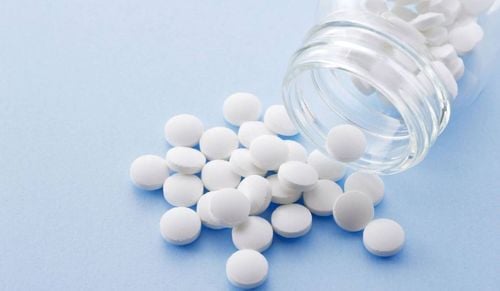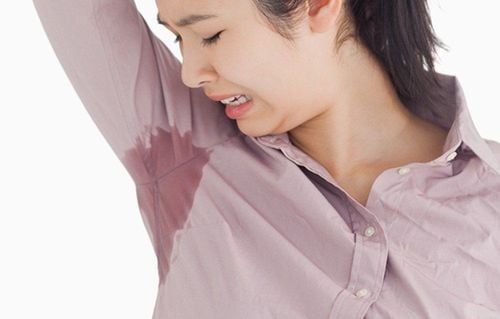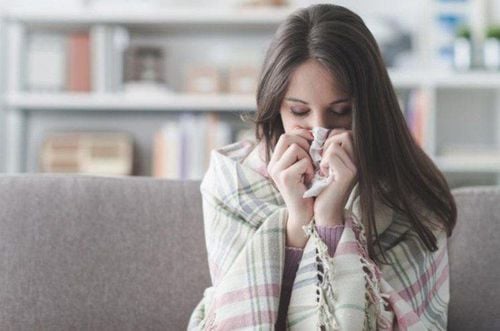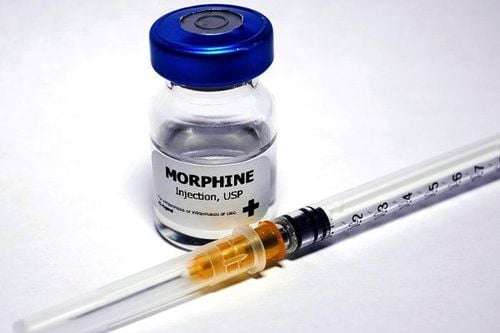This is an automatically translated article.
Night sweats can be a symptom of many underlying conditions, including cancer and hormonal changes. In addition, medications and other health problems can also cause increased night sweats. So why does cancer treatment cause night sweats?
1. Causes of night sweats
Sweating is a phenomenon in which the body releases water and salts through the skin to cool and regulate body temperature. The amount of sweat produced more or less will depend on the intensity of the activity, emotional state and temperature of the environment.Common reasons that can cause abnormal night sweats include:
Medications, such as: Prescription pain relievers, steroids and antidepressants Menopause HIV Certain infections Sugar levels Low blood levels An overactive thyroid, also known as hyperthyroidism, Anxiety In addition, increased night sweats may also be linked to cancer and some cancer treatments. Specifically:
Lymphoma Leukemia Bone cancer Liver cancer Carcinoid tumors (usually found in the digestive tract) Adrenal system tumors Hormone therapy for breast, gynecological, and prostate cancers
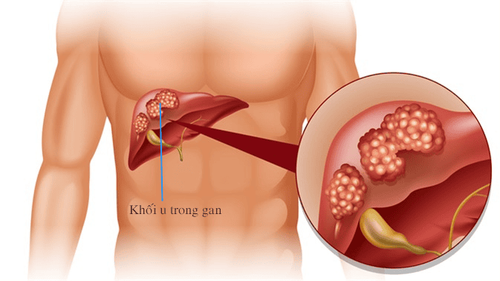
Tăng tiết mồ hôi ban đêm cũng có thể liên quan đến ung thư gan
2. Why does cancer treatment increase night sweats?
As mentioned, night sweats can both be a symptom of disease, but can also sometimes be a side effect of some cancer treatments. Each type of cancer will have a different effect on the patient's body. In particular, breast and prostate cancer negatively affects the production of sex hormones. Furthermore, cancer treatments — such as surgery, chemotherapy, radiation therapy, and hormone therapy — can stimulate menopause in women to occur earlier. It is this mechanism that contributes to increased night sweats, as well as heat in the body.
Recommended videos:
Learn about radiation oncology: Basic cancer treatments
According to the Cancer Institute, night sweats are common among people recovering from cancer, especially women. The causes of some cancers and treatments that cause night sweats can be explained as follows:
Fever As the body tries to fight the tumor, the immune response causes some symptoms, including fever to sweat, help lower body temperature. In addition, some cancer therapies also reduce the immune response, thereby increasing the risk of infection, which requires the body to be cooled by sweat.
Premature menopause, hormonal changes Hot flashes and night sweats are the result of hormonal changes at menopause - the end of a woman's reproductive age. This phenomenon usually occurs spontaneously around the age of 50, if earlier it is called premature menopause (side effect of cancer treatment). Women with breast or reproductive system cancers also affect hormones, so they are more prone to night sweats.
Low testosterone in men Similar to women, when men are treated for prostate cancer by surgical removal of one or both testicles, testosterone levels will decrease. This disrupts hormones, leading to a number of unpleasant symptoms, including increased night sweats.
Recommended video:
Close-up of prostate cancer treatment with robotic laparoscopic surgery
Medicines Some cancer drugs also cause night sweats. For example, Aromatase inhibitors are indicated as hormone therapy and Tamoxifen for the treatment of breast malignancies; group of strong pain relievers Opioids for cancer patients; tricyclic antidepressants to treat depression - a common symptom in people diagnosed with cancer; substances that help reduce swelling and inflammation Steroids for cancer patients.
3. Symptoms of increased night sweats
You can distinguish night sweats from night sweats or night sweats by the following characteristics:
Wet when you wake up, from your hair to your clothes and sheets Chills Mild fever with heavy sweating Sweating but no fever Sudden, brief feeling of heat accompanied by flushing or sweating If cancer has been diagnosed, see your doctor if you have:
Tremors or chills Fever of 38°C or higher (when oral temperature is taken) for more than 24 hours
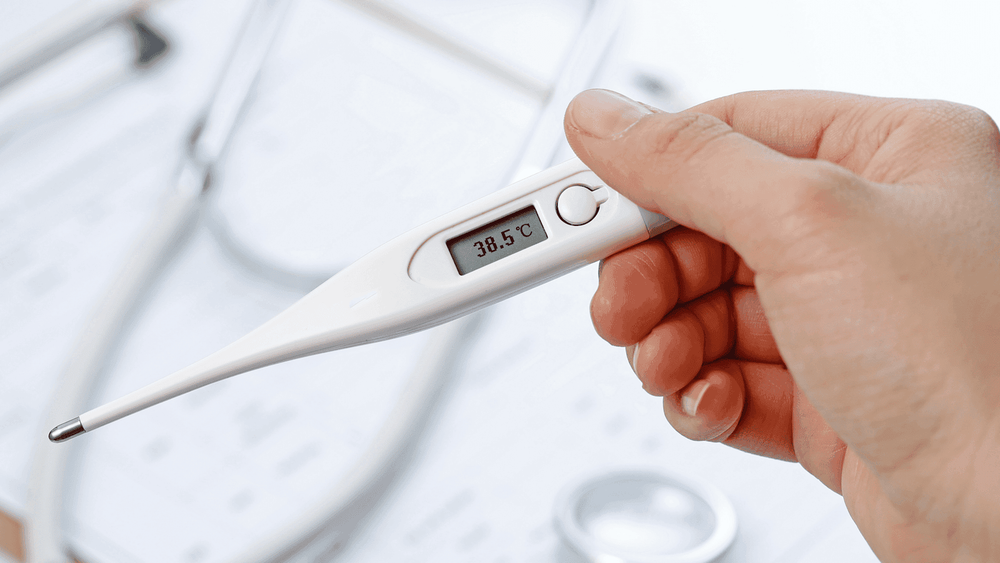
Người bệnh khi xuất hiện sốt từ 38°C trở lên cần đến gặp bác sĩ ngay
4. How to control night sweats
Night sweats cause the sick person to wake up with wet clothes and bed sheets, causing a lot of trouble. Because a complete cure is so difficult, medical professionals have come up with ways to make living with the condition easier. Taking these simple steps will help ease the discomfort of night sweats:
If you have a fever, take a fever-reducing medication - such as acetaminophen, after consulting your doctor. Change clothes that are soaked with sweat. sweat as soon as possible Change sheets and pillowcases if wet Take a bath at least once a day to soothe skin and keep it clean Turn on a fan when sleeping at night Do not use thick, layered blankets Wear breathable, lightweight and moisture-wicking pajamas Try a pillow or cushion with a cooling gel feature Do not cover your legs with blankets to reduce body temperature Take a cool shower before bed Keep your body weight balanced You also You can try relaxation and stress-reduction techniques like yoga, acupuncture, meditation, or breathing exercises. Some research shows that slow, steady breathing can reduce night sweats, helping you sleep better.
At the end of the day, especially right before bedtime, do not:
Drink alcohol or hot drinks Exercise Sleep in a hot room Eat spicy, hot food

Người bệnh không nên uống rượu trước khi ngủ
Although it is not possible to completely prevent night sweats, the above tips will provide significant relief from unpleasant symptoms.
Excessive sweating while sleeping can be a sign of some cancers and treatments, but it's not clear why. According to many studies, the body is trying to fight the tumor that can cause night sweats. Hormonal changes and fevers can also cause sweating, which helps regulate body temperature. In some cases, cancer treatments, such as chemotherapy, hormone replacement drugs, and morphine, also cause night sweats.
Early cancer screening is considered a perfect measure in the timely detection and treatment of all types of cancer. Vinmec International General Hospital currently has a high-tech cancer screening and examination package, including genetic testing, imaging, and biomarkers for early tumor detection. A single gene test can assess the risk of 16 common cancers in both men and women (lung cancer, colorectal cancer, breast cancer, pancreatic cancer, cervical cancer) bow , stomach cancer , prostate cancer ,....)
Please dial HOTLINE for more information or register for an appointment HERE. Download MyVinmec app to make appointments faster and to manage your bookings easily.
Reference source: webmd.comSEE ALSO:
Increased sweating: What you need to know How to treat hyperhidrosis of hands, feet and underarms Is there any definitive treatment for increased sweating?




